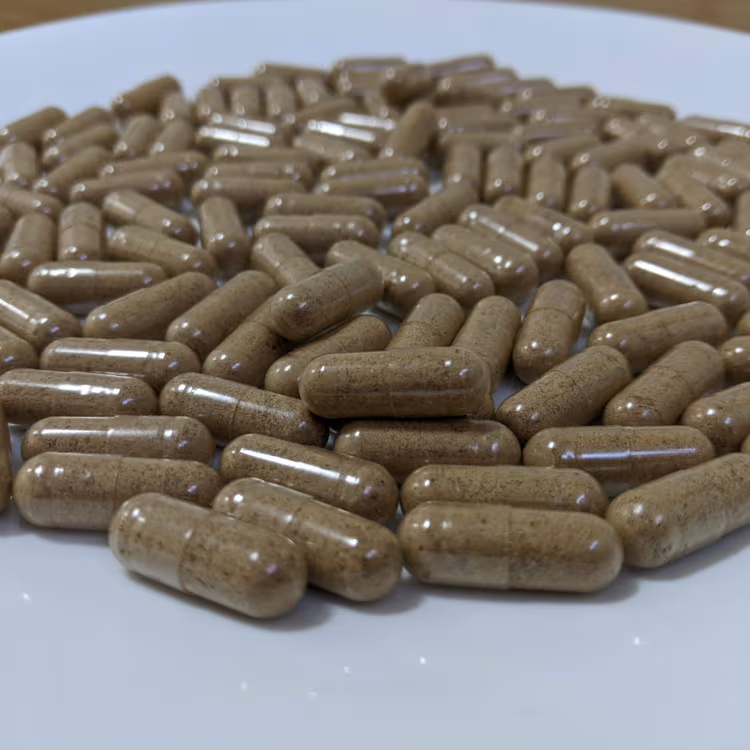
Disclaimer
Remember, We are someone who loves to grow mushrooms—We are not a healthcare professional. All the information we provide here is based on the personal experiences of our customers, our own experience, and credible sources online. Before making any health decisions, you must consult a healthcare professional.
What does Lion's Mane do for you?
Boosts Cognitive Function: Lion's Mane mushrooms contain compounds that stimulate brain cell growth, enhancing memory, focus, and overall cognitive function.
Is Lion's Mane legal in Australia?
In Australia, Lion's Mane mushroom powder is classified as a 'novel food.' This classification means it's currently illegal to sell Lion's Mane powder as a food supplement. This regulation is in place to ensure the safety and well-being of consumers, a value we wholeheartedly endorse.
What happens if you take Lion's Mane everyday?
Taking Lion's Mane mushrooms daily can offer various health benefits due to their rich content of bioactive compounds. Here's a summary of what you might expect from consistent, daily consumption:
Does Lion's Mane make you sleepy?
While Lion's Mane doesn't directly induce sleepiness, its potential benefits for mental health and relaxation can contribute to better sleep indirectly. Here's how:
Is Lion's Mane worth it?
Whether Lion's Mane is worth it can only be answered individually, as its benefits for cognitive enhancement, mental health, and overall wellness vary from person to person.
What is the Dosage for Lion's Mane?
The recommended dosage for Lion's Mane can vary based on the form and individual needs, but here are general guidelines:
Does Lion's Mane work for brain fog?
Yes, Lion's Mane mushrooms are known for their potential to alleviate brain fog. They contain compounds like hericenones and erinacines that promote the growth and repair of nerve cells, enhancing cognitive function, clarity, and focus. Regular use of Lion's Mane may help reduce symptoms of brain fog by supporting overall brain health and improving mental clarity.
Will lion mane show up on a drug test?
No, Lion's Mane mushrooms will not show up on a drug test. Standard drug tests are designed to detect specific substances such as illegal drugs, prescription medications, and certain performance-enhancing drugs. Lion's Mane does not contain any compounds that are typically screened for in these tests, so consuming Lion's Mane should not cause any issues with drug testing.
Does Lion's Mane Make you sleepy?
Choosing between ashwagandha and Lion's Mane depends on your specific health goals, as both offer unique benefits:
Who should not take lion's mane?
While Lion's Mane mushrooms offer numerous health benefits, certain individuals should avoid them or consult a healthcare provider before use:
Pregnant or Breastfeeding Women: There is limited research on the safety of Lion's Mane for pregnant or breastfeeding women, so it's best to avoid it during these periods.
Individuals with Mushroom Allergies: Those with known allergies to mushrooms should steer clear of Lion's Mane to prevent allergic reactions.
People on Blood-Thinning Medications: Lion's Mane may have anticoagulant effects, which could interfere with blood-thinning medications, increasing the risk of bleeding.
Individuals with Bleeding Disorders: Due to its potential blood-thinning properties, those with bleeding disorders should avoid Lion's Mane.
People with Autoimmune Diseases: Since Lion's Mane can stimulate the immune system, it might exacerbate symptoms in individuals with autoimmune conditions.
Always consult with a healthcare provider before starting any new supplement, especially if you have existing health conditions or concerns.
What does Lion's Mane do for ADHD?
The Benefits of Lion's Mane for ADHD
Lion's Mane mushrooms (Hericium erinaceus) have garnered attention for their potential benefits in managing symptoms of Attention Deficit Hyperactivity Disorder (ADHD). Here's a brief overview of how Lion's Mane might help:
Supports Cognitive Function
Lion's Mane contains compounds that stimulate the production of Nerve Growth Factor (NGF), which is crucial for the growth and maintenance of neurons. Enhanced cognitive function, including improved focus, memory, and mental clarity, can be particularly beneficial for individuals with ADHD.
Reduces Inflammation
Inflammation in the brain has been linked to various neurological conditions, including ADHD. The anti-inflammatory properties of Lion's Mane may help reduce this inflammation, potentially alleviating some symptoms of ADHD.
Promotes Neuroplasticity
Neuroplasticity, the brain's ability to reorganize itself by forming new neural connections, is essential for learning and adapting. Lion's Mane may support neuroplasticity, which can be advantageous for individuals with ADHD in managing cognitive challenges.
Regulates Mood
ADHD often coexists with mood disorders such as anxiety and depression. Lion's Mane has been shown to have anxiolytic and antidepressant effects, which might help improve mood and emotional stability in people with ADHD.
How to Incorporate Lion's Mane for ADHD Management
If considering Lion's Mane for ADHD management, it's crucial to consult with a healthcare professional. Lion's Mane can be taken as a supplement in the form of capsules, powders, or tinctures. Additionally, growing your own Lion's Mane mushrooms at home with a mushroom kit can ensure a fresh and reliable supply.
What are Potential Side Effects and Considerations?
While Lion's Mane is generally considered safe, some people may experience side effects such as:
How quickly does lion's mane work?
Should I take Lion's Mane at night or day?
Whether to take Lion's Mane at night or during the day can depend on individual goals and preferences. Some people prefer taking it in the morning for enhanced cognitive function and focus throughout the day, while others may take it at night for its potential calming effects and to support brain health during sleep. Ultimately, the best time to take Lion's Mane is based on personal experience and desired outcomes.
Is Lions Mane addictive?
No, Lion's Mane mushrooms are not considered addictive.
Is Lion's Mane bad for liver?
Lion's Mane mushrooms are generally considered safe and are not known to be harmful to the liver. In fact, they may offer protective benefits for liver health due to their antioxidant and anti-inflammatory properties. However, as with any supplement, it's important to use Lion's Mane in moderation and consult a healthcare provider if you have any existing liver conditions or are taking medications that affect liver function.
Is Lion's Mane Bad for the Kidneys?
Lion's Mane mushrooms are generally considered safe and are not known to be harmful to the kidneys. In fact, their antioxidant and anti-inflammatory properties may offer protective benefits for overall health, including kidney function. However, if you have pre-existing kidney conditions or are taking medications that affect kidney function, it's important to consult with a healthcare provider before adding Lion's Mane to your regimen.
What is the best form of lion's mane to take?
The best form of Lion's Mane to take can depend on your personal preferences and specific health goals. Here are the common forms and their benefits:
Director of Rootlab


